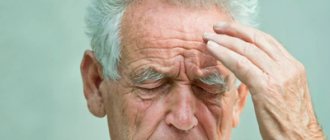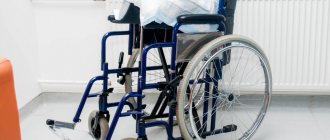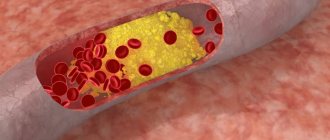Multiple sclerosis is classified as an autoimmune disease. The pathology occurs with damage to the brain and spinal cord. The collapsing sheaths of nerve fibers, which contain myelin, form focal demyelination of the scattered type. Externally, these formations in multiple sclerosis resemble scar tissue.
The chronic central nervous system (CNS) disorder affects two million people worldwide. Multiple sclerosis is more common in women than in men after puberty. Until this point, it occurs in the same number of cases in boys and girls. On average, per 100 thousand people, 35-50 patients have the disease.
Types of sclerosis
Clinicians distinguish several types of pathology:
- Atherosclerosis. The disease is characterized by the presence of “cholesterol plaques” on the walls of blood vessels.
- Multiple sclerosis. It occurs quite often in people over 70 years of age. It manifests itself as a violation of neural communication between organs, tissues and brain cells.
- Thrombosclerosis. Characterized by the occurrence of blood clots, adhesions, and hematomas.
- Senile sclerosis. This type is caused by changes occurring in the structure of the brain.
- Pneumosclerosis. It is rare and develops as a result of damage to the nerve cells of the lungs.
- Autoimmune sclerosis. It develops against the background of damage to the myelin sheath of the nerve fibers of the spinal cord and brain.
Despite the wide variety and complex course of the pathology, medicine has modern means of diagnosing it.
Main signs of the disease
The development of multiple sclerosis usually occurs gradually and is hardly noticeable; moreover, it is almost impossible to identify the disease in the very initial stages. This is due to the fact that for a long time the function of damaged nerves is taken over by healthy cells and tissues in the brain or spinal cord. And only over time the first symptoms gradually begin to appear:
- people usually complain of impaired vision in one or both eyes;
- the eyes often begin to hurt, double vision is observed;
- there are unpleasant sensations in the fingers, similar to tingling and numbness;
- secondary signs of multiple sclerosis are impaired coordination of movements, muscle pain and weakness, and decreased skin sensitivity.
Causes
The main causes of senile sclerosis:
- Biochemical processes that negatively affect brain cells. As the body ages, the transmission of impulses between neurons decreases.
- Cerebrovascular accident. With age, the permeability of the bloodstream and the elasticity of blood vessels decrease, which contributes to the death of neurons.
- Slowing down neuronal cell regeneration. Negatively affects the functioning of the central nervous system and overall health.
In some cases, the development of the disease is due to a genetic predisposition. However, in most cases, the occurrence of pathology is facilitated by processes associated with age-related changes occurring in the body of older people.
Why are mental disorders more common among older people?
Modern medicine has the ability to optimize the functioning of the nervous system of even a very elderly person. There are people over 80 years of age without any signs of dementia or “senile sclerosis.” Old age is not a disease. Dementia (senile dementia or senile insanity) and age-related depression are diseases with their own clearly defined causes and treatment options.
The nervous system of an elderly person has a number of features.
- Insufficient blood supply to the brain. With age, blood vessels, including those of the brain, become less elastic, and “plugs” – atherosclerotic plaques – appear inside the vessels. The brain finds itself in a state of lack of blood flow and nutrition. And brain cells are very “gluttonous” and under conditions of nutritional deficiency they work worse and then die. During this period, a kind of senile egoism and insomnia often appear.
- Slower brain cell renewal . The older we get, the slower the renewal process goes, especially in conditions of reduced blood flow.
- Changes in biochemical processes in the brain . An electrical impulse is transmitted from one nerve cell to another with the participation of special chemicals - neurotransmitters. These include, for example, serotonin, dopamine, norepinephrine. In older people, the ability to produce and accumulate these substances decreases. Therefore, the conduction of nerve impulses suffers, and, as a result, the overall productivity of the brain weakens, deviations in behavior, emotional, mental and motor spheres arise.
Our task at the examination stage is to unambiguously determine the dominant cause of brain suffering, then our treatment will be exactly as intended.
Two cases of vascular dementia (senile dementia) from our practice. The symptoms are similar, but the treatment required is different.
MRI of the brain. The brain appears gray, the cerebrospinal fluid appears black, and the affected areas of the brain appear white.
- LEFT – normal brain.
- IN THE CENTER – the brain is partially replaced by fluid, arrows indicate areas of reduced blood circulation. The reason is the formation of blood clots due to heart rhythm disturbances + the entry of these blood clots into the brain.
- RIGHT - brain mass is seriously reduced with replacement by fluid, white spots are an area of massive death of brain cells. The reason is a narrowing of the carotid arteries by 75% and 80% by cholesterol plaques.
Symptoms
Sclerosis negatively affects the psycho-emotional state of an elderly person and often leads to prolonged depression. The pathology is manifested by the following symptoms:
- Extreme touchiness.
- The assessment of current events is exclusively negative.
- Progressive forgetfulness.
- Joint pain.
- Migraine.
- Increased blood pressure and, as a result, the occurrence of cardiovascular diseases.
If these symptoms appear frequently, this is a reason to consult a specialist, since only early diagnosis and timely treatment will help slow down the destruction of brain cells.
When the disease is diagnosed at a late stage, the prognosis for improvement is unfavorable. This is due to the occurrence of an irreversible process of destruction of brain neurons. In this case, an elderly person experiences the following symptoms:
- Dementia.
- Disorientation.
- Aggressiveness.
- Inability to perceive information.
- Anxiety, causeless anxiety.
- Apathy, depression, increased drowsiness.
- Senile egoism.
- Inability to reason logically.
The appearance of these signs indicates the presence of deep senile sclerosis in an elderly person. At this stage of the disease, neuron cells die off quite rapidly, which precedes such mental manifestations as hallucinations and delusions. In some cases, a person may lose control of himself.
Caring for older people with multiple sclerosis
This disease can begin to develop in people from 15-40 years of age, but the consequences of the disease are most serious in old age. Multiple sclerosis is an incurable disease; specialists can only reduce its manifestations with the help of special medications.
For people at a “well mature” age who suffer from this disease, proper care from loved ones is extremely important so that relapses do not occur. But, unfortunately, it is not always possible for children and grandchildren to be nearby to care for sick grandparents. In such situations, the most reasonable way out is for an elderly person to live in a private boarding house.
Diagnostics
Correct treatment of the pathology is possible only after the following diagnostic measures:
- MRI and CT of the brain.
- Complete blood test (sugar, creatinine, blood electrolytes, vitamin B1 level).
- Study of cerebrospinal fluid.
- Blood test for thyroid hormones.
In addition, a neurologist examines the medical history and collects information about a possible genetic predisposition to the development of this pathology.
Treatment
Treatment of senile sclerosis requires an integrated approach. Therapy is quite long and is often accompanied by the participation of a cardiologist, neurologist and psychotherapist. Only in this case is there a high probability of stopping the destruction of brain neurons.
Before prescribing treatment, the specialist finds out the cause of the degradation of brain cells. Therapy for senile sclerosis includes the use of medications, effective folk remedies, psychotherapist sessions, dietary nutrition, physical activity and normalization of the daily routine.
Drug treatment
For senile sclerosis, the following groups of drugs are prescribed:
- Psychostimulants. In most cases, therapy is based on taking psychostimulants. Drugs in this group have a stimulating effect on parts of the brain.
- Nootropics. These drugs have a positive effect on the integrative functions of the brain, suppressing aggressive manifestations.
- Tranquilizers. Medicines in this group help reduce excessive emotional excitability and anxiety.
In addition to drug therapy, psychotherapeutic treatment is recommended for an elderly person suffering from sclerosis. Sessions with a neuropsychiatrist promote positive thinking and help prepare for long-term treatment.
Folk remedies
Effective folk remedies can be used as part of the complex treatment of senile sclerosis. Tinctures from rowan bark, elecampane, clover, heather decoction, garlic oil, onions with honey have a beneficial effect.
Before using such products, you should consult your doctor.
Other methods
Positive dynamics in treatment depends not only on the timely use of medications and folk remedies. Factors such as:
- Interest in life. The involvement of an elderly person in society and family affairs has a beneficial effect on his psycho-emotional state.
- Elimination of stress. To avoid exacerbations of sclerosis, it is necessary to protect the elderly from worries and stress, since this significantly impairs memory.
- Memory training. Reading is one of the most effective ways to train memory at any age. After reading a book or article, it is necessary to analyze what you read and highlight the most important episodes.
- Planning. Thought processes in any manifestation effectively affect the functioning of the brain in old age. Daily brain training can include making a plan for several days. This could be a trip to the store, household chores, hobbies, etc.
- Concentration of attention. Mastering computer literacy, foreign languages, learning poems and songs will help activate your memory. When absorbing significant volumes, it is necessary to take a break of at least two hours. This will allow you to better assimilate new information.
Treatment of senile sclerosis is a long process, so relatives must support the elderly person. This requires providing not only emotional support, but also monitoring the intake of medications and compliance with all recommendations of the attending physician.
Garlic
Excellent for senile sclerosis. It should be consumed in the form of an alcohol tincture. It is made in a dark glass container. A third of the bowl is filled with finely chopped garlic, and 2/3 with alcohol. The tincture is kept for 2 weeks. All this time she must stand in a dark place. The container must be shaken daily to prevent the formation of a thick sediment. Upon completion of the process, take 5 drops of the tincture (dissolve in a teaspoon of clean water) before meals. The product stabilizes blood pressure and cleans blood vessels.
Prevention
You can avoid the occurrence of senile sclerosis if you follow the following recommendations:
- Active lifestyle. A daily walk in the fresh air is a must in an elderly person’s daily routine.
- Positive thinking. Positive emotions are as essential to brain function as oxygen.
- Maintaining a daily routine. An important condition for active brain function in old age is sleep for at least 8 hours.
- Memory training. Watching educational programs, learning a foreign language, memorizing poetry, etc.
- Compliance with drinking regime. Drinking 1.5-2 liters of water per day helps cleanse blood vessels.
- Diet. In old age, it is important that the diet consists of foods rich in protein, fiber and Omega-3. It is also necessary to enrich the diet with vegetables and fruits.
Compliance with these rules promotes the active functioning of brain cells and helps preserve memory for many years.










